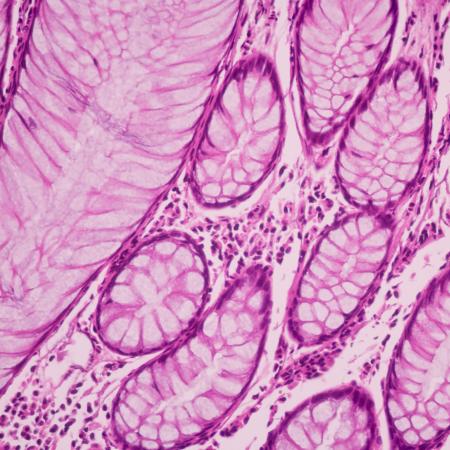New awards from the College of Science will support research on quantum information applications, better cancer screening and bioimaging technologies, as well as other high impact projects that open pathways to new frontiers of science.
The Science Research and Innovation Seed Awards (SciRIS) funds projects based on collaborative research involving the College community and beyond. There are two pathways through this program, the SciRIS (Stages 1-3) and the SciRIS individual investigator award (SciRIS-ii). The SciRIS Stages 1-3 program funds teams in three stages to foster team development, build capacity, and accelerate projects, while the SciRIS-ii program provides funds to establish partnerships, accelerate project development, generate data and manuscripts, and foster proposal submissions.
The donor-supported College of Science Disease Mechanism and Prevention Fund (DPF) supports research into the mechanism, diagnosis, treatment and prevention of disease by faculty within the College of Science.
Five scientists in the College received SciRIS-ii and DPF awards of $10,000 each.
Physics Professor Oksana Ostroverkhova and her collaborator Pallavi Dhagat from the College of Engineering at Oregon State University received a SciRIS-ii award for their project, “Understanding properties of quantum materials for spintronics and magnon valleytronics.” The collaboration will advance research on fundamental physics properties in newly discovered 2D materials to guide technological advances and better design of spintronic and valleytronic devices.
Spintronics and valleytronics have unusual electronic properties that make them of particular interest in semiconductors and quantum computing. The researchers will explore the unique physical properties of 2D materials, otherwise known as nanomaterials, such as spin damping, spin lifetime, spin diffusion length and magnetic exchange energy to develop spintronic and valleytronic devices for quantum computing, sensing, information storage, and optical modulation.
Chong Fang, associate professor of chemistry, received a SciRIS-ii award to establish a research collaboration with Sheel Dodani from the Department of Chemistry and Biochemistry at The University of Texas at Dallas. The project, “Capturing Molecular Movies of Chloride Biosensors in Action,” will allow the Fang Lab to apply cutting-edge spectroscopic techniques to reveal the working mechanisms of the jellyfish Phialidium sp. (phiYFP), which has a fluorescent yellow protein with the potential to be developed into biosensors.
Fang will utilize the femtosecond Raman spectroscopy — the only technology of this kind in the Pacific Northwest — to investigate the unique fluorescence properties of phiYFP. The goal of the research is to achieve a breakthrough in rational design and molecular engineering of the next-generation fluorescent-protein-based biosensors, which can advance bioimaging applications to improve human health.
Assistant Professor of chemistry Kyriakos Stylianou’s SciRIS-ii award will support his research on the detection and removal of chemical contaminants from drinking water. This project, entitled “Selective, fast-response and regenerable metal-organic frameworks for sampling chemical contaminants in drinking water,” will develop novel metal-organic frameworks (MOFs) that can be used to filter out water contaminants such as fluoride, chloride, arsenic, chromate anions and heavy metal ions. MOFs are porous inorganic materials, whose special chemical structures make them highly suitable for water treatment and other applications.
Established in 2018, the SciRIS awards have supported several significant research projects that span molecular biophysics, marine biology, metagenomics and medical chemistry. They have contributed to acceleration of research at OSU, and supported scientists on their journey to move basic research ideas and discoveries from the lab to applications and practical solutions.
Using fundamental science to improve human health
Marilyn Mackiewicz, assistant professor of chemistry, received a DPF award to carry forward her project on improving contrast agents in imaging techniques to screen and diagnose breast cancer. Her project, “Robust Lipid-coated Silver Nanoparticles for Diagnosis of Triple-Negative Breast Cancer Using X-ray Computer Tomography Imaging,” aims to design, in the long term, biocompatible silver nanomaterials that have higher X-ray contrast in biological environments and can identify triple-negative breast cancer cells.
In order to detect breast cancer early, the project aims to provide more sensitive imaging with higher contrast than available in the traditional iodine-based contrast agents used in current imaging techniques. Mackiewicz will collaborate with researchers from environmental toxicology at Oregon State and the Indiana School of Medicine on this project.
Adrian Gombart, professor of biochemistry and a researcher at the Linus Pauling Institute, will utilize his DPF award to investigate how anti-infection agents can influence Alzheimer’s disease amid a growing interest in the possible role of infections in causing Alzheimer’s. The project will study the potential use of an antimicrobial peptide called cathelicidin to curtail the development of Alzheimer’s. Gombart’s project, “Role of the Cathelicidin Antimicrobial Peptide in the Development of Alzheimer’s Disease,” will employ mouse models to better understand the effects of cathelicidin on the brain during the development of the disease. The knowledge gleaned from this research could lead to further development of effective preventative therapies or treatments of Alzheimer’s disease.




